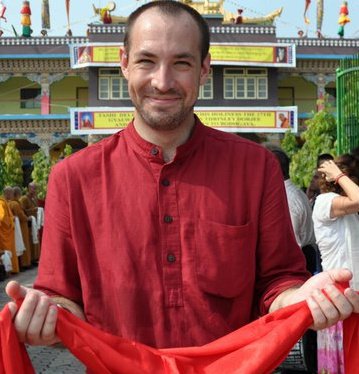August was a difficult month for many in the Western Buddhist world. Two esteemed Tibetan teachers have stepped down from leading their organizations after students came forward with allegations of sexual and physical abuse, among other things.
For many, hearing about a teacher being accused of such acts will bring confusion. Isn’t this teacher awakened? Is this gossip? Will reporting him (or, very rarely, her) cause karmic or social harm to me or to my religion?
Luckily, many trustworthy and wise teachers have spoken out. The Dalai Lama, who has issued statements before about the need for Westerners to confront ant report abusive teachers, clearly stated that all teachers should have their teachings questioned and that any harmful conduct should be publicize. Yongey Mingyur Rinpoche, Lama Rod Owens and Justin von Bujdass, and Dr. Miles Neal have also spoken out eloquently about the need for contemporary students to confront abusive teachers.
Unfortunately, this is not easy for those who have invested so much of their lives in a teacher or particular tradition. And, as some Buddhist traditions have a history of patriarchy (all, I would say) and many have a way of slipping into authoritarianism, caution is certainly due.
I waded into the waters myself, essentially “calling out” a popular Tibetan Buddhist teacher for shifting the blame onto the abuse victims with some of his words as well as some other things. This ignited both a tempest of claims I was in the wrong or should silence myself and several messages of thanks and agreement, both public and private.
As a public intellectual and writer with a potential to reach many people, I felt that speaking out was my duty. To the extent that I could understand the events, people, and relevant moral matters, I did so. I tried to neither shy away from controversy which might cause blame nor seek simple simple solutions that would offer unearned praise.
The nature of karma as I know it is in the motivation behind an action, coupled with the understanding of the agent. Our understanding should limit our going forth and giving our views about each and every little thing (of course our ignorance is often what draws us into such territory!). But, with understanding as a sort of limiter, our compassion should draw us toward those who are suffering. Once there, we should do what we can: in body, speech, and mind, to help them. This is the Buddhism I know. The rest, they might say, is commentary.


I wanted simply to indicate that I liked this – which I do – by clicking the like button. But to do so I need to register with WordPress and get a password. Is there no simpler way readers can indicate they like something on Buddhustdoor?
I’m not sure, this seems to be a requirement of WordPress. I’ll pass it on to our admin team to see if we can do anything!